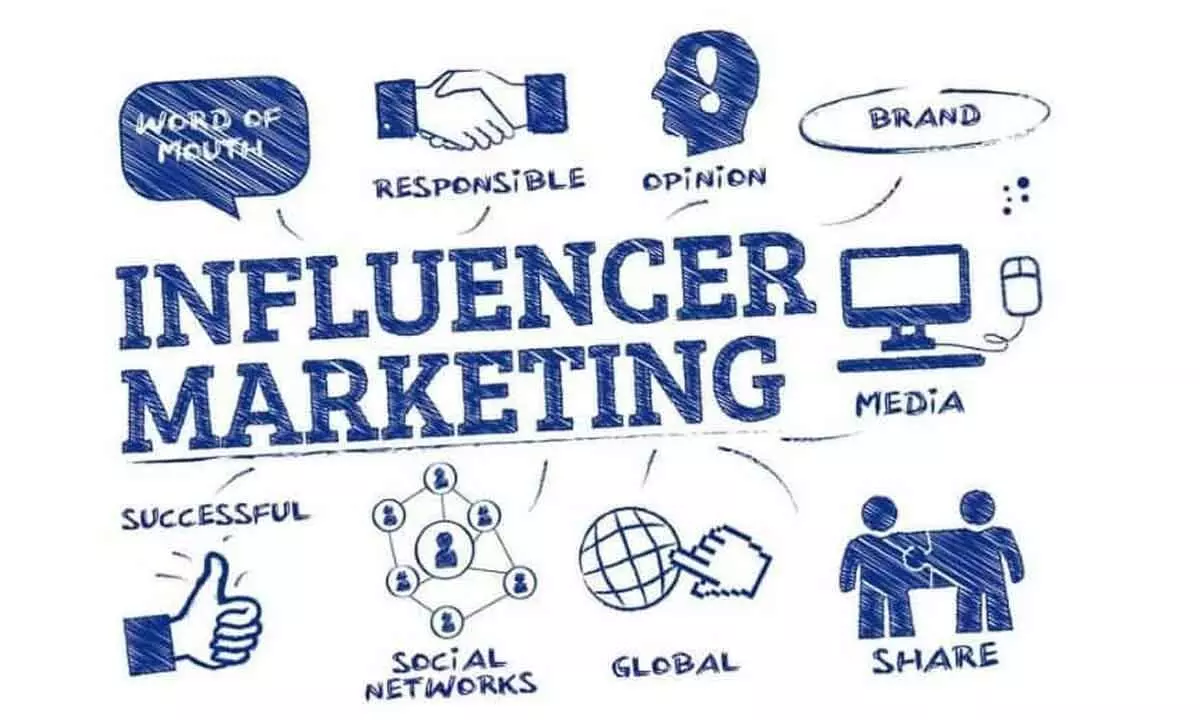EY and Big Bang Social put influencer marketing growth at Rs 3,375 crore by 2026
Nano influencers had the highest engagement rate compared to other influencer categories
image for illustrative purpose

The growth of social influencer marketing is expected to be driven by lifestyle, fashion, and beauty sectors, with automobiles, e-commerce and FMCG spending. Highlighting the influencer marketing trends in India, the latest report by EY and Collective Artists Network’s Big Bang Social indicates that the industry is poised for a significant growth.
The report titled 'The State Of Influencer Marketing in India', states that influencer marketing in India is expected to surge by 25% in 2024, reaching Rs. 2,344 crore, and further expand to Rs. 3,375 crore by 2026. These projections underscore the continued growth and potential of the influencer marketing industry, presenting ample opportunities for brands, marketers and influencers alike.
The report highlights a crucial insight: with 50% of mobile usage dedicated to social media platforms, integrating influencer marketing into communication strategies is essential for marketers. In addition, it is expected that there will be 740 million active smartphones in India by 2030. Consequently, three out of four brand strategies are expected to include influencer marketing. Brands prioritise engagement rate and the quality of the target audience when selecting influencers, recognising the importance of authentic connections in reaching their desired audience.
It was found that marketers must strike a strategic balance between mega/macro influencers to drive awareness and brand loyalty, while also tapping into the power of micro/nano influencers to drive engagement. Interestingly, nano influencers had the highest engagement rate compared to other influencer categories. It is important to note that 47% of brands preferred driving influencer campaigns with micro and nano influencers due to the lower cost per reach.
Challenges were reported from both the brand side and influencer side. The biggest challenge for marketers was determining the ROI of their influencer marketing campaigns, while building a loyal audience and maintaining credibility were the top two challenges for influencers.
The marketing tool has gained massive popularity in the recent as 75 per cent brands are expected to consider influencer marketing as part of their marketing strategy.
This can be attributed to the time that smartphone users spend on various social media platforms
This can be attributed to the time that smartphone users spend on various social media platforms. Around 50 per cent of the time spent on smartphones is on social media platforms. Of the many platforms out there, mobile phone users preferred to consume content made/marketed by influencers on Instagram and YouTube.
The marketing tool has gained massive popularity in the recent as 75 per cent brands are expected to consider influencer marketing as part of their marketing strategy. Around 86 per cent of influencers are expected to see a growth of more than 10 per cent in their income over the next 2 years.
It added that 56 per cent of the brands have invested more than two per cent towards influencer marketing. Around 70 per cent of the brands are planning to keep their budgets for influencer marketing constant or hiking it in 2024. Half of these brands are planning to ramp up the cash pumped into influencer marketing by around 10 per cent, the report mentioned. While influencer marketing may be a great proposition for those who have a huge following on social media, it is not the only criteria that brands consider while choosing influencers as ambassadors.
Around 27 per cent brands consider engagement rate whereas 26 per cent factor in the quality of target audience as a key criteria for selecting/rejecting influencers. Following this, some brands also consider industry specialisation (24 per cent) while followers (23 per cent) come at the fourth spot.
Nearly 61 per cent of the brands use influencers for driving awareness and social media engagement around their brands. Of this, 32 per cent use influencer marketing to spread brand awareness whereas 29 per cent use it to drive social media engagement.
Approximately 22 per cent brands also use influencer marketing for lead generation whereas the remaining 17 per cent use the tool for sales conversion.
Commenting on the findings of the report, Amiya Swarup, partner, Marketing Advisory, EY India, said, “In today's rapidly changing Indian society, citizens face transformations in various aspects - be it societal norms, career paths, financial strategies, or cultural shifts. Influencers are stepping in to provide guidance, reassurance, and advice, effectively assuming the role of contemporary heroes. Coupled with the projected growth in influencer marketing, it's clear that influencers now define an unprecedented era of knowledge and impact, while also unlocking vast opportunities for brands and marketers.”

